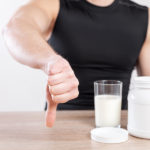By David Blyweiss, M.D.
I love to travel, which is good since I must often head for far-flung places to attend medical conferences and seminars. But the actual mechanics of getting from Point A to Point B isn’t always easy—a fact I was reminded of during a recent trip to Europe.
Whether your trip is work-related or simply for pleasure, travel typically involves long lines, bad airport food, irritating people, and lots and lots of waiting. It taxes the body, both physically and mentally. But travel doesn’t have to be as stressful or debilitating as we often make it. Over the years, I’ve learned a few tricks that can help ease your journey.
Open your arteries, improve blood flow for a new health miracle...
Did you know your circulatory system has over 60,000 miles of arteries, veins and other blood vessels, if stretched end to end?
But as you age, your blood vessels undergo changes, which may cause them to stiffen, thicken and get clogged.
GOOD NEWS! Doctors have now identified a “Miracle Molecule” inside your arteries that helps OPEN your arteries and IMPROVE blood flow.
It’s what Dr. Valentin Fuster calls it, "One of the most important discoveries in the history of cardiovascular medicine."To you, that means...
- Healthy blood pressure
- Sharper mind and memory
- Skyrocketing energy and muscular strength
- Increased pleasure and passion in the bedroom
- Improved circulation to every cell and organ in your body
Go here to discover a new natural way to significantly boost the levels of this miracle molecule in YOUR body NOW!
If you are flying this summer, you will no doubt find yourself faced with bad and worse choices in airport food. Much of the food sold in airports lack proper nutrition, so I suggest that you pack your own meals. As long as you avoid liquids or gels, you shouldn’t have any trouble bringing food through security. Opt for good sources of protein, complex carbohydrates, fiber and healthy fats. Grilled chicken breast strips, a variety of steamed or raw vegetables, a small bag of walnuts and a piece of fresh fruit are perfect choices for traveling. The protein and fiber regulate blood sugar; the vegetables and fruit reduce blood acidity and introduce antioxidants; and the oil in the nuts stimulates bile production and anti-inflammatory prostaglandins. Making the right food choices can also help boost the immune system and protect the body from all the environmental changes we encounter when traveling.
Are You Suffering From...
- Love handles and a pot belly
- Romance that isn't what it used to
- Forgetfulness and inattention
- Low (or no) strength and endurance
- A sex drive that's shifted into neutral...or worse
If so...you may have Mature Male Burnout. Click here to discover more about this unique condition and what you can do about it.
It’s not just what you eat while traveling, but how you eat. You should eat every three hours to maintain your energy and steady blood sugar levels. If you can, try to find a quiet corner of the airport during a layover or before your departure. Eating on the go when your body and mind are under stress can cause heartburn, cramping, gas and belching. But avoiding commotion while you eat will aid in digestion and help the body better assimilate nutrients.
It’s also wise to avoid caffeine, alcohol and sugar. All of these substances contribute to dehydration, another big problem for air travelers. Flying dehydrates the body because of the high altitude and low oxygen. In fact, research has shown that the dryness inside an airplane is tantamount to that of a desert. You can counter this by drinking a lot of water, even if you don’t feel thirsty.
Another problem travelers face is inactivity. Whether you are flying or driving, travel can involve hours of sitting, which can result in blood pooling in the legs. This can trigger the formation of blood clots—a condition called deep vein thrombosis or simply DVT. And the longer the trip, the greater the risk. To counter the chance of developing DVT, take a stroll to the bathroom or around the cabin every hour or so, and do some simple stretches while in your seat. If you’re driving, make sure to stop every hour or so. Stretch and walk around for at least five minutes to get your blood flowing.
If you suffer from atherosclerosis or are at risk of blood clots during long drives or flights, consider taking Pycnogenol. Clinical tests have shown that Pycnogenol is 50 times more potent than vitamin E and 20 times more effective than vitamin C. It’s also a powerful anti-inflammatory agent that can thin the blood, making it particularly useful for preventing DVT. Taking 100 mg. of Pycnogenol just before your journey is sufficient to protect most people from DVT. But if you are at high risk, I advise taking it up to a week before your trip to “prime” your arteries.
Jet lag can also take a toll on travelers crossing multiple time zones. Extended plane travel can interfere with the production of melatonin, a hormone that helps regulate our sleep-wake cycles. Taking supplemental melatonin, however, can help counteract this effect. On the day of your flight, take 1 to 3 mg. of melatonin between 6:00 and 7:00 p.m. your time (you may have to take the melatonin on the plane). On the day you arrive and for the next four days, also take one dose of melatonin at bedtime. Doing this should help get your sleep schedule back in sync.
References:
Belcaro G, et al. Prevention of venous thrombosis and thrombophlebitis in long-haul flights with pycnogenol. Clinincal and Applied Thrombosis/Hemostatsis. 2004;10:373-377.
Cohen M. Traveller’s ‘funny tummy’ – reviewing the evidence for complementary medicine. Australian Family Physician. 2007;36:335-336.
Srinivasan V, et al. Jet lag: therapeutic use of melatonin and possible application of melatonin analogs. Travel Medicine and Infectious Disease. 2008;6:17-28





